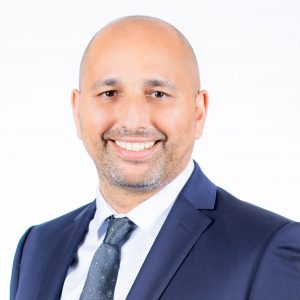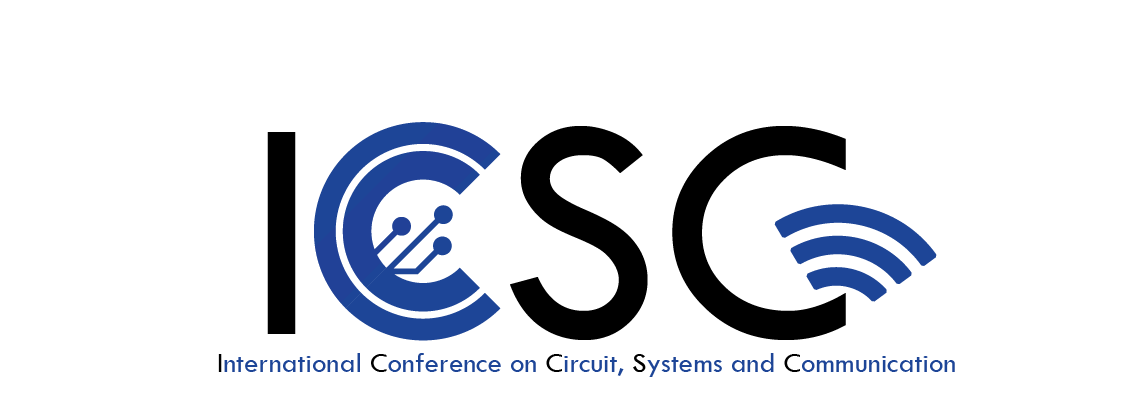ICCSC 2023
Keynote Speakers

Dr. Anand Nayyar
Professor, Scientist, Vice-Chairman (Research), Director (IoT and Intelligent Systems Lab) in School of Computer Science, Duy Tan University, Da Nang, Viet Nam.
TITLE: 6G Wireless Communication: Architectures, Use Cases and Research Areas
Short Bio: Dr. Anand Nayyar received Ph.D (Computer Science) from Desh Bhagat University in 2017 in the area of Wireless Sensor Networks, Swarm Intelligence and Network Simulation. He is currently working in School of Computer Science-Duy Tan University, Da Nang, Vietnam as Professor, Scientist, Vice-Chairman (Research) and Director- IoT and Intelligent Systems Lab. A Certified Professional with 100+ Professional certifications from CISCO, Microsoft, Amazon, EC-Council, Oracle, Google, Beingcert, EXIN, GAQM, Cyberoam and many more. Published more than 160+ Research Papers in various High-Quality ISI-SCI/SCIE/SSCI Impact Factor- Q1, Q2, Q3 Journals cum Scopus/ESCI indexed Journals, 70+ Papers in International Conferences indexed with Springer, IEEE and ACM Digital Library, 40+ Book Chapters in various SCOPUS/WEB OF SCIENCE Indexed Books with Springer, CRC Press, Wiley, IET, Elsevier with Citations: 10000+, H-Index: 53 and I-Index: 190. Member of more than 60+ Associations as Senior and Life Member. He has authored/co-authored cum Edited 50+ Books of Computer Science. Associated with more than 600+ International Conferences as Programme Committee/Chair/Advisory Board/Review Board member. He has 18 Australian Patents, 7 German Patents, 4 Japanese Patents, 40 Indian Design cum Utility Patents, 4 UK Patent, 1 USA Patent, 3 Indian Copyrights and 2 Canadian Copyrights to his credit in the area of Wireless Communications, Artificial Intelligence, Cloud Computing, IoT, Healthcare, Drones, Robotics and Image Processing. Awarded 40 Awards for Teaching and Research—Young Scientist, Best Scientist, Best Senior Scientist, Asia Top 50 Academicians and Researchers, Young Researcher Award, Outstanding Researcher Award, Excellence in Teaching, Best Senior Scientist Award, DTU Best Professor and Researcher Award- 2019, 2020-2021, 2022 and many more. He is listed in Top 2% Scientists as per Stanford University (2020, 2021, 2022) , Ad Index (Rank No:1 Duy Tan University, Rank No:1 Computer Science in Viet Nam) and Listed on Research.com (Top Scientist of Computer Science in Viet Nam- National Ranking: 2; D-Index: 31). He is acting as Associate Editor for Wireless Networks (Springer), Computer Communications (Elsevier), International Journal of Sensor Networks (IJSNET) (Inderscience), Frontiers in Computer Science, PeerJ Computer Science, Human Centric Computing and Information Sciences (HCIS), Tech Science Press- IASC, IET-Quantum Communications, IET Wireless Sensor Systems, IET Networks, IJDST, IJISP, IJCINI, IJGC, IJSIR. He is acting as Managing Editor of IGI-Global Journal, USA titled “International Journal of Knowledge and Systems Science (IJKSS)” and Editor-in-Chief of IGI-Global, USA Journal titled “International Journal of Smart Vehicles and Smart Transportation (IJSVST)”. He has reviewed more than 2500+ Articles for diverse Web of Science and Scopus Indexed Journals. He is currently researching in the area of Wireless Sensor Networks, Internet of Things, Swarm Intelligence, Cloud Computing, Artificial Intelligence, Drones, Blockchain, Cyber Security, Healthcare Informatics, Big Data and Wireless Communications.

Prof. Philip W. T. Pong
ECEC 327, Department of Electrical and Computer Engineering,
New Jersey Institute of Technology, Newark, NJ 07102, United States
TITLE: Contactless Magnetic Sensing in Condition Monitoring and Anomaly Detection for Smart Grid: New Possibilities and Alternatives
Abstract: Our physical and cyber environments are becoming increasingly intertwined with smarter sensing, communication, and data analytics. Our daily livings are indeed surrounded by a wide variety of sensors, IoT connectivity, and edge computing devices, constituting smart grid, smart city, smart transportation, and so on. The availability of sensing devices with measurement, communication, and processing capabilities is providing fine-grained data. Together with multimodal sensory data collection and sensor fusion can result in actionable insights and decisions. This synergy can lead to improved ways and quality of life in what we call smart living. Magnetism is one of the six energy forms of measurands in sensing. Magnetic sensing plays a critical role in smart living due to various sources of magnetic fields such as magnetic fields from current-carrying wires and permanent magnets which are geometrically determined by Biot-Savart Law and Ampere's Law respectively. These magnetic fields can range from DC to AC, from low frequency to high frequency. Modern civilization heavily relies on electricity which are generated, transmitted, and utilized through various kinds of transmission medium and electrical machines that are composed of current-carrying conductors, electromagnets, and permanent magnets. As such, magnetic field sensing is an important source of data and thus information for condition monitoring of power generation, transmission, and distribu-tion. In this talk, we will discuss the various opportunities and alternatives magnetic field sensing can offer in condition monitoring and anomaly detection in smart grid and smart city. Since it is contactless sensing, its installation is easy and it can be easily retrofitted to the existing plant and equipment. This will minimize cost, avoid wear and tear, and meet stringent relia-bility requirement. Contactless magnetic sensing can complement the traditional contact measurement techniques and help to overcome the major obstacle towards pervasive sens-ing due to its scalability.
Short Bio: Philip W. T. Pong received a B.Eng. from the University of Hong Kong (HKU) in 2002 with 1st class honours. Then he obtained a PhD in engineering at the University of Cambridge in 2005. He was a postdoctoral researcher at the Magnetic Materials Group at the National Institute of Standards and Technology (NIST) for three years. Currently he is an Associate Professor in the Department of Electrical and Computer Engineering at New Jersey Institute of Technolo-gy (NJIT). His research interest focuses on the fault detection, predictive maintenance, and anomaly detection of power grid. He is the Founding Director of the Green Technology Re-search and Training Laboratory, leading the research and education activities of offshore wind energy at NJIT. Philip Pong is a Fellow of the Institution of Engineering and Technology (FIET), a Fellow of the Institute of Physics (FInstP), a Fellow of the Energy Institute (FEI), a Fellow of the Institute of Materials, Minerals and Mining (FIMMM), a Fellow of the Hong Kong Institution of Engineers (FHKIE), a Fellow of the NANOSMAT Society (FNS), a chartered physicist (CPhys), a chartered engineer (CEng), a chartered energy engineer, a registered pro-fessional engineer (R.P.E. in Electrical, Electronics, Energy), and a Senior Member of IEEE (SMIEEE). He serves on the editorial boards for several IEEE and SCI journals.

Prof. Mérouane Debbah
Chief Researcher at the Technology Innovation Institute in Abu Dhabi,
New Jersey Professor at Centralesupelec, France
TITLE: Large Language Models for wireless: the next big thing?
Abstract: Large Language Models (LLMs) have shown remarkable success in natural language processing (NLP) tasks, such as language translation, text summarization, and sentiment analysis. They can also help in identifying network faults, improving network security, and facilitating spectrum sharing. LLM-based solutions can be trained on large-scale datasets to capture the heterogeneity and diversity of wireless networks. These models can be deployed on resource-limited devices, such as smartphones, to provide intelligent wireless services. Based on our recent announcement of FALCON LLM in march 2023 (https://www.itp.net/emergent-tech/uae-owned-ai-language-model-outperforms-chatgpt3), which is a foundational large language model (LLM) with 40 billion parameters, outperforming GPT 3, developed by the AI and Digital Science Research Center at TII, we will discuss our recent progress on LLM features and the potential of FALCON LLM in enabling intelligent wireless communication systems.
Short Bio: Mérouane Debbah is Chief Researcher at the Technology Innovation Institute in Abu Dhabi. He is a Professor at Centralesupelec (France) and an Adjunct Professor with the Department of Machine Learning at the Mohamed Bin Zayed University of Artificial Intelligence in Abu Dhabi. He received the M.Sc. and Ph.D. degrees from the Ecole Normale Supérieure Paris-Saclay, France. He was with Motorola Labs, Saclay, France, from 1999 to 2002, and then with the Vienna Research Center for Telecommunications, Vienna, Austria, until 2003. From 2003 to 2007, he was an Assistant Professor with the Mobile Communications Department, Institut Eurecom, Sophia Antipolis, France. In 2007, he was appointed Full Professor at CentraleSupelec, Gif-sur-Yvette, France. From 2007 to 2014, he was the Director of the Alcatel-Lucent Chair on Flexible Radio. From 2014 to 2021, he was Vice-President of the Huawei France Research Center. He was jointly the director of the Mathematical and Algorithmic Sciences Lab as well as the director of the Lagrange Mathematical and Computing Research Center. Since 2021, he is leading the AI & Digital Science Research centers at the Technology Innovation Institute. He has managed 8 EU projects and more than 24 national and international projects. His research interests lie in fundamental mathematics, algorithms, statistics, information, and communication sciences research. He holds more than 40 patents. He is an IEEE Fellow, a WWRF Fellow, a Eurasip Fellow, an AAIA Fellow, an Institut Louis Bachelier Fellow and a Membre émérite SEE. He was a recipient of the ERC Grant MORE (Advanced Mathematical Tools for Complex Network Engineering) from 2012 to 2017. He was a recipient of the Mario Boella Award in 2005, the IEEE Glavieux Prize Award in 2011, the Qualcomm Innovation Prize Award in 2012, the 2019 IEEE Radio Communications Committee Technical Recognition Award and the 2020 SEE Blondel Medal. He received more than 25 best paper awards, among which the 2007 IEEE GLOBECOM Best Paper Award, the Wi-Opt 2009 Best Paper Award, the 2010 Newcom++ Best Paper Award, the WUN CogCom Best Paper 2012 and 2013 Award, the 2014 WCNC Best Paper Award, the 2015 ICC Best Paper Award, the 2015 IEEE Communications Society Leonard G. Abraham Prize, the 2015 IEEE Communications Society Fred W. Ellersick Prize, the 2016 IEEE Communications Society Best Tutorial Paper Award, the 2016 European Wireless Best Paper Award, the 2017 Eurasip Best Paper Award, the 2018 IEEE Marconi Prize Paper Award, the 2019 IEEE Communications Society Young Author Best Paper Award, the 2021 Eurasip Best Paper Award, the 2021 IEEE Marconi Prize Paper Award, the 2022 IEEE Communications Society Outstanding Paper Award, the 2022 ICC Best paper Award, the 2022 IEEE GLOBECOM Best Paper Award, 2022 IEEE TAOS TC Best GCSN Paper Award, the 2022 IEEE International Conference on Metaverse Best Paper Award as well as the Valuetools 2007, Valuetools 2008, CrownCom 2009, Valuetools 2012, SAM 2014, and 2017 IEEE Sweden VT-COM-IT Joint Chapter best student paper awards. He is an Associate Editor-in-Chief of the journal Random Matrix: Theory and Applications. He was an Associate Area Editor and Senior Area Editor of the IEEE TRANSACTIONS ON SIGNAL PROCESSING from 2011 to 2013 and from 2013 to 2014, respectively. From 2021 to 2022, he served as an IEEE Signal Processing Society Distinguished Industry Speaker.

